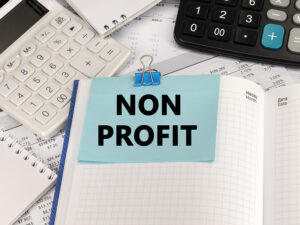Self-Employed May Be Eligible for COVID-Related Tax Breaks for 2020
Kirsch CPA Group
Mar 17, 2021

If you’re self-employed as a sole proprietor, partner or limited liability company (LLC) member, COVID-relief legislation passed in 2020 included tax breaks that may affect your 2020 personal federal income tax return. In some cases, the tax savings may be significant. Here are two important COVID-related tax breaks that every self-employed individual should consider before filing Form 1040 for 2020.
1. Deferred SE Tax
The CARES Act allows the self-employed to defer half of their 2020 liability for the 12.4% Social Security tax component of the self-employment (SE) tax for the deferral period. This period ran from March 27, 2020, to December 31, 2020.
If you took advantage of this tax break for 2020, you must pay the deferred SE tax amount in two installments: the first half by December 31, 2021, and the second half by December 31, 2022. SE tax bills can be a heavy financial burden. So, if you’re cash-strapped, the deferral privilege can help your cash flow situation.
For 2020, the Social Security tax component of the SE tax can be as much as $17,075 ($137,700 × 12.4%). Using the SE tax deferral calculation method on the applicable IRS form, the deferred SE tax could be as much as $8,538 (half of $17,075). In this example, someone would pay in $4,269 by December 31, 2021, and the remaining $4,269 by December 31, 2022.
2. Credits for Sick Leave and Family Leave
The Families First Coronavirus Response Act (FFCRA) granted 2020 federal tax credits to small employers to cover mandatory payments to employees who took days off for qualified sick leave or qualified family leave between April 1, 2020, and December 31, 2020. There are two separate credits: one for qualified sick leave and another for qualified family leave. Two equivalent credits are available to self-employed individuals who took days off between April 1, 2020, and December 31, 2020, for qualified sick leave or qualified family leave.
Both of the credits for self-employed individuals are refundable, which means you can collect them even if you don’t have any federal income tax liability. But you must file Form 1040 for 2020 and include Form 7202 to cash in.
Here are some details on claiming these credits.
Sick leave credit. A credit is allowed for sick leave days that you took between April 1, 2020, and December 31, 2020. The daily sick leave credit equals: 1) 100% of the daily sick-leave equivalent amount, plus 2) 67% of the daily sick-leave equivalent amount if you took leave to care for a sick person or for an under-age-18 son or daughter following the closing of the child’s school or place of care or because the child care provider was unavailable due to COVID-19 precautions.
The daily sick-leave equivalent amount equals the lesser of:
- Your average daily self-employment income (net self-employment earnings for 2020 divided by 260), or
- $511 per day for up to 10 sick days (up to $5,110 in total) to care for yourself or $200 per day for up to 10 days (up to $2,000 in total) to care for another sick person or for an under-age-18 son or daughter for any of the reasons listed above.
Family leave credit. A separate credit is allowed for family leave days that you took to care for an under-age-18 son or daughter between April 1, 2020, and December 31, 2020, following the closing of the child’s school or place of care or because the child care provider was unavailable due to COVID-19 precautions.
You can claim the family leave credit for a maximum of 50 days. The allowable credit equals the number of qualified family leave days multiplied by the lesser of:
- Your average daily self-employment income (net self-employment earnings for 2020 divided by 260), or
- $200 per day.
The maximum total family leave credit is $10,000 (50 days × $200 per day).
Important: Alternatively, you can elect to use your 2019 net self-employment earnings to calculate your average daily self-employment income for purposes of claiming these credits. In some cases, this option can result in bigger credits.
It’s important to maintain documentation to establish your eligibility for these credits. For example, the IRS requires people who took sick leave, based on a quarantine order or advice to self-quarantine, to document the name of the governmental entity ordering quarantine or the name of the health care professional who advised self-quarantine. If you took sick leave days to care for another person who was subject to quarantine or advised to self-quarantine, you must document the other person’s name and relationship to you.
Likewise, if you took family leave days to care for an under-age-18 son or daughter based on a school closing or child care facility closing or child care provider unavailability, you must document:
- The name and age of the child, and
- The name of the facility or program (for example, the school, summer camp, summer enrichment program or child care provider) that was closed or unavailable.
In addition, you must state that no one else provided care for the child during the days you took family leave.
Are You Eligible for a Federal Tax Break?
2020 was a tough year for many self-employed people due to the COVID-19 economic fallout. Fortunately, Congress provided some tax relief measures to help cushion the blow. Contact Kirsch to find out if you’re eligible for the breaks covered in this article, or others, for 2020.
Contact us to learn if you are eligible for tax breaks
© Copyright 2021. All rights reserved.
More Resources

About The Author
Kirsch CPA Group is a full service CPA and business advisory firm helping businesses and organizations with accounting,…
Sign Up for Email Updates
Tags
Accounting & Financial News

Favorable Business Depreciation Tax Changes Under New Law
There's good news for businesses considering buying equipment and other capital assets: The One Big Beautiful Bill…

The OBBBA: What It Means For Nonprofits
On July 4, 2025, President Trump signed the One, Big, Beautiful Bill Act (OBBBA), which contains several…



